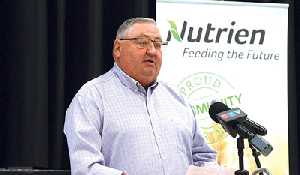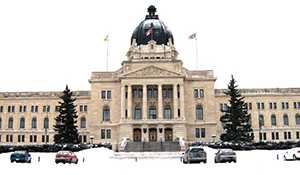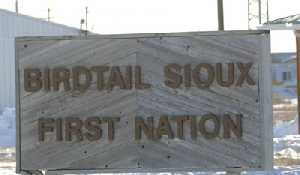Trade issues top of mind for farmers this election
October 5, 2019, 5:58 am
kevin Weedmark


APAS president Todd Lewis says trade issues are top of mind for farmers as the federal election nears. The World-Spectator’s Kevin Weedmark interviewed Lewis last week:
What do you think are the priorities for farmers in this election? What are you hoping to see from the parties and candidates this election?
Certainly the trade issues are on a lot of farmers’ minds with what happened with the India situation on the pulses and the Italian Durum and of course the China and the canola situation. We are hoping to see some kind of direction.
I think farmers realize these are all complicated issues but at the same time even last night during the election debate the little bit that I caught out of it, both the Liberals and Conservatives are talking about further compensation for supply management industries—poultry and eggs. They are hurt there due to trade issues and trade pact signings.
We’re wondering with the meat sector and thinking that the precedent has been set that other parts of our industry as well as other industries have been compensated for these trade issues. It has affected the grain, oil, seed and meat sector as well. We would like to see some kind of plan coming forward if this is going to continue, that we’d see some compensation for our industries as well. That is some of the talk going on in farm country.
I think it ties in nicely with the business management review as well. Certainly the programs we have in place now don’t have any long-term relief from these trade situations, and at the same time we are being affected pretty hard by what has happened in the U.S. with their farm policies down there and the money that is being put out to U.S. farmers is affecting our input costs and machinery costs as well. We are kind of getting it on both ends right now.
I think doing the business risk management program, we need to see some improvement there so if we do have those situations we will see some results as far as our programs being able to cover some of the costs that we incur.
Any other major issues for farmers during this election?
The carbon tax I think, carbon pricing. It’s certainly starting to show up on farmers’ bottom lines. A perfect example this fall is the grain drying, it is not exempt and the farmers will be paying more for their natural gas and propane and that is going to come right off our bottom lines and make a difficult situation more expensive.
So it’s something farmers recognize and we need whoever forms the next government to recognize that these added costs are affecting farmers and it’s not allowing farmers to adapt to climate change. Grain drying is a perfect example of an adaptation to climate change and at the end of the day with that added tax we’ve got less money in our pocket to be able to afford the technology to improve our carbon footprint.
That is just another example of where we need our politicians in Ottawa to look at what these taxes and extra costs are, and the actual effect it’s having on farmers and how we can adapt to the change of climate.
Do you feel that the federal parties are paying enough attention to agricultural issues?
No they are not. We haven’t seen much about agriculture in the campaign so far, and we are hoping as leaders come into Saskatchewan as the campaign goes on that agriculture gets more announcements and more thoughts put behind it.
There is a number of federal programs that could help agriculture. Certainly the fuel standards that are coming forward for ethanol and bio diesel, those standards, if they do have those components they will certainly help with domestic demand and help our market do well.
I think that’s another example of where we want to know where the parties stand on the fuel standards and what we can expect when the new government is formed, whichever party that is.
Do you think there is any acknowledgment from the federal parties of the importance of agriculture?
Well certainly when you look at the supply managed side of agriculture you can be a little cynical. Vote rich Ontario and Quebec is where a lot of that part of the industry is centered, and those seats are up for grabs, if you want to put it that way, compared to a lot of the seats in western Canada.
At the same time that may be true, but we want to see our MPs that go down to Ottawa talking about this at the caucus level or the cabinet level, and we want to make sure our situation in Saskatchewan is recognized and talked about.
We are hoping as the candidates go around to rural Saskatchewan this fall that farmers are asking these questions and we certainly expect our representatives down in Ottawa to bring some of the issues forward when they get down there later on this fall and early winter.



































